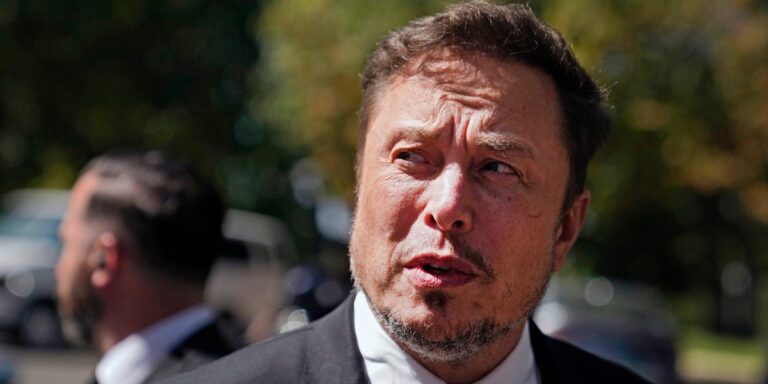During Tesla’s analyst call on Tuesday following its second-quarter earnings report, Elon Musk faced questions about the automaker’s aging product lineup, the delay of its Robotaxi event and concerns about the automaker’s supply of AI chips.
Tesla missed earnings estimates despite reporting better-than-expected revenue in the quarter. Adjusted profit margin also fell to 14.4% from 18.7% year-over-year as the company slashed prices in an effort to boost sales amid a challenging demand environment.
Musk offered investors little assurance Tuesday night, and those eager to hear details about Tesla’s upcoming vehicles were likely disappointed.
Tesla CEO confirmed Tesla’s Robotaxi event has been postponed until October 10, but didn’t say much about when the first Robotaxi can be expected to arrive in autonomous service.
Regulatory approval for robotaxi and unsupervised self-driving technology will also be a major hurdle for Tesla to overcome. While Musk has said he’s optimistic that Tesla’s self-driving efforts will receive regulatory approval — he said he’d be “surprised” if the first robotaxi ride wasn’t possible next year — he couldn’t provide a concrete timetable and admitted that he’s leaning toward optimism. Musk has argued that regulators will have a “moral obligation” to approve Tesla’s autonomous technology once they’re shown driving data.
The Tesla CEO also gave vague answers to questions about Tesla’s new Roadster and a cheaper next-generation vehicle. Musk said the company would introduce a cheaper EV in the first half of 2025, but failed to provide further details about the product — something Tesla has promised for years.
He also faced some tough questions during the call, including about how he makes resource allocation decisions among his various companies.
Specifically, he was asked about news reports that he had diverted Nvidia GPU shipments originally intended for Tesla to his other ventures, X and xAI. Musk tried to spin the fact that the move actually benefited Tesla, since the automaker didn’t have the infrastructure to use the chips at the time.
But minutes earlier, Tesla’s CEO had expressed concerns about the automaker’s access to Nvidia’s AI chips given the high demand amid the AI arms race, adding that Tesla intended to equip the chips with its Dojo supercomputer, which is still under construction.
One bright spot was Tesla’s energy storage business, which the company said posted record profits in the segment during the quarter. The company also earned $890 million in revenue from selling regulatory credits to automakers whose fleets don’t meet emissions requirements — a big increase from the previous quarter.
While Musk is optimistic that the company will solve the autonomy problem and eventually reach a $5 trillion valuation, investors appear unconvinced.
By the time Musk signed off on the earnings call, the automaker’s shares had plunged more than 7% in after-hours trading.


